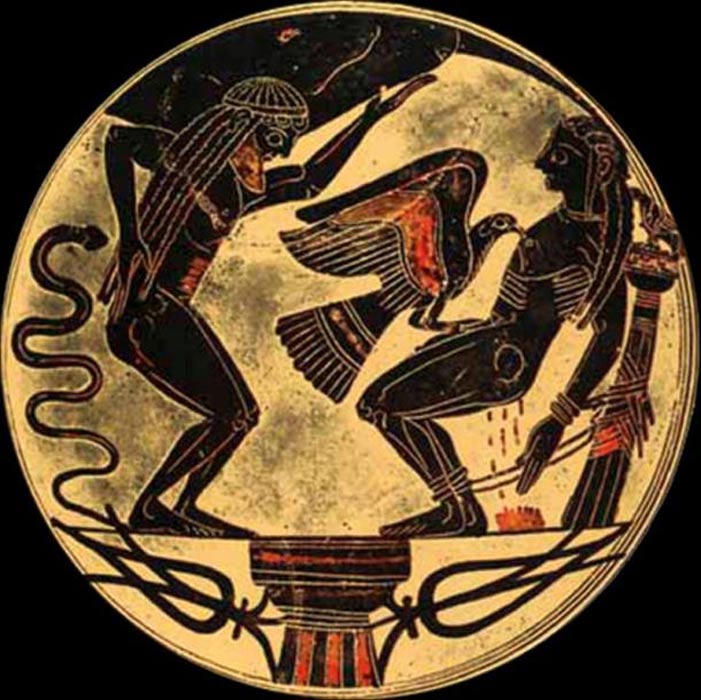
Thieves of Fire in Ancient Mythology: Divine Creation and Destruction in the Hands of Man
From ancient times and even to this day, people consider fire one of the basic elements of the universe. Interpretations of fire in ancient mythologies vary greatly, with fire viewed as a creative and cleansing force as well as a destructive and punishing one. Due to its life-giving qualities, fire is closely associated to the gods in the ancient world. As fire is “divine” and heavily associated with creation (creation of food, creation of warmth and so on), a lot of ancient myths imply that fire was meant for the gods, not mankind, to control. Therefore, the giving of fire or, more often, the theft of fire for the benefit of humanity who were not meant to hold such power, is a theme that recurs in many world mythologies.
Thus we have heroes and divine tricksters in ancient mythologies who would steal fire and cheat death to give mankind a bit of that power of “creation”. The most famous story is easily the story of the titan Prometheus, from Greek mythology, who stole the heavenly fire for humanity, thereby enabling the progress of civilization. In Polynesian mythology, Maui stole fire from the fire goddess Mahuika. In North America there is a myth from the Ojibwa people, of Nanabozho the hare that stole fire and gave it to the humans.
Prometheus: The Thief of Fire, Friend of Mankind

Prometheus brings fire to mankind. (Public Domain)
Zeus gave the titan Prometheus a mission to form men from water and earth. While he was working on his creation, Prometheus grew fond of mankind and wished for them to be able to look after and fend for themselves to a degree, although some versions say that Prometheus was so proud of his creations that he wanted them to have the power of the gods themselves. Nevertheless, Prometheus decided to steal one of the great powers of the gods – fire. Prometheus tricked the goddesses by throwing a golden pear with a message: “For the most beautiful goddess of all”. The goddesses, who each thought that the pear was meant for them, started a fight over the fruit while the gods looked on. While they were all distracted, Prometheus stole the fire from the workshop of Hephaestus, the god of fire and metalwork. Prometheus happily took the fire with him in a hollowed reed, brought it down to Earth and gave it to mankind.
- Vahagn: The Armenian Dragon Slayer God and Bringer of Fire
- Fire Symbolism: Flames that Ignite Faiths and Inspire Minds
- Amoral Tricksters that Enhance World Mythology and Entertain Cultures
This angered Zeus. He told Hephaestus to chain Prometheus on Mount Caucasus where the eagle would eat his liver for all eternity.

An eagle tears out Prometheus’ liver out every day in punishment. Laconic bowl (~550 BC) (CC BY 2.0 )
Much later, Heracles, on his journey to fulfill his Twelve Labors, passed by Mount Caucasus, killed the eagle, and freed the chained Titan. Zeus agreed to grant Prometheus his freedom provided that Prometheus wore a reminder of his punishment forever in the form of a steel ring taken from the chains that bound him. Since then, it is said mankind started creating rings in order to celebrate Prometheus and show their appreciation of his help.
Prometheus in Ancient Arts and Literature
The famous legend of Prometheus is told at length by Hesiod and pervades ancient literature through Greek and Roman times. In literature, it has been immortalized by Aeschylus' play Prometheus Bound. In visual arts, representations of the various parts of the legends survived from Greek and Roman art. Some artworks found include an ivory plaque from the Sanctuary of Artemis and a number of early vase-paintings from the seventh and sixth century BC. There are also a few red-figured vase-paintings of Prometheus and numerous engraved gems, wall-paintings, lamps, sarcophagi, and other reliefs from the Roman period.





